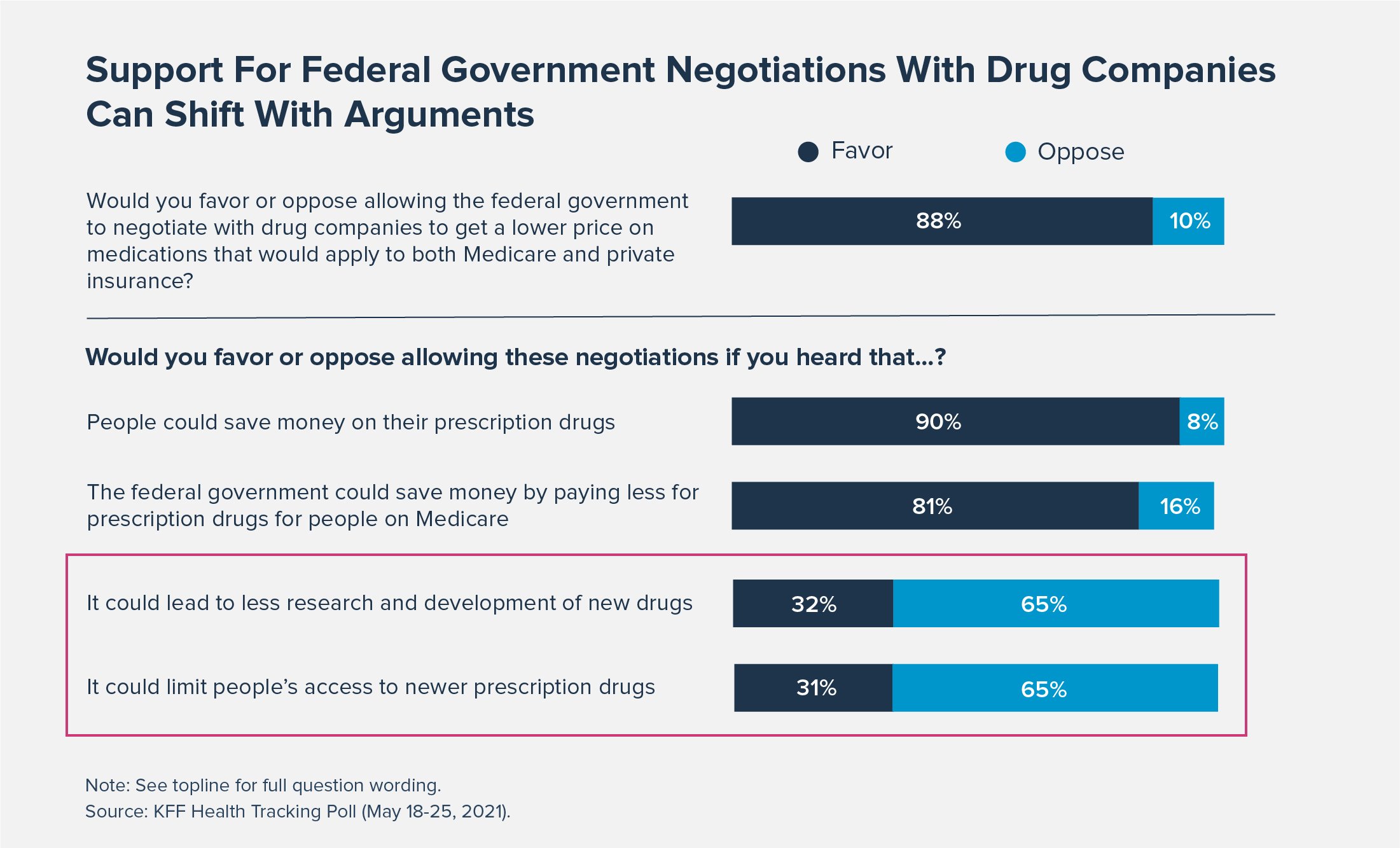Proponents of government price setting often misrepresent voters’ opinions on support for allowing the federal government to “negotiate” drug prices. This includes recent polling from advocacy firms like the Alliance for Retired Americans/Lake Research Partners that fails to reveal voters’ true health care priorities and concerns with government price setting, or so-called “negotiation.”
Polling that misrepresents voter opinion by choosing to focus on only one issue, out of context, and neglects to offer trade-offs and policy alternatives not only grossly oversimplifies serious topics, but also overlooks the true concerns of voters and ignores the voices of patient advocates.
The fact is that non-partisan, independent public polls have repeatedly demonstrated that once Americans understand what government “negotiation” is and what the tradeoffs are – restrictions in access or a slowdown in innovation for new treatments – support evaporates.

Americans reject so-called Medicare negotiation once they learn about the trade-offs.
- According to the Kaiser Family Foundation (KFF) research, 65% of Americans oppose negotiation if it leads to less research and development of new treatments or if it limits people’s access to medicines once they come to market.
- 76% of Americans oppose H.R. 3-type “negotiation” if it causes delays in access to new prescription drugs, and 72% oppose it if it results in fewer new medicines developed in the future.
Research from multiple sources reinforces that Americans want to make sure policymakers do not disrupt the innovation ecosystem or limit patient access as part of a “negotiation.”
- Americans are proud of COVID-19 vaccines as a result of government and industry collaboration, and 82% agree keeping a strong American biopharmaceutical industry is a matter of national security to protect us against future pandemics.
- 62% agree we should keep the current law that prohibits government interference in Medicare plan negotiations because it protects seniors and people with disabilities from losing access to their medicines.
Voters prefer commonsense, patient-centered solutions to address their true concerns, like lowering out-of-pocket costs while protecting robust access to medicines.
- 62% strongly support (83% support overall) requiring health insurance companies to pass along to patients more of the discounts on prescription medicines at the pharmacy counter that they negotiate with pharmaceutical companies.
- 60% strongly support (83% support overall) ensuring that deductibles are lower and more affordable so that insurance kicks in earlier when patients need to use it.
- 56% strongly support (75% support overall) placing a cap on the amount health insurers can make patients pay for deductibles, copays and other out-of-pocket costs.
- 54% strongly support (77% support overall) requiring Medicare Part D plans to set a maximum limit for what seniors pay out of pocket for prescription medicines each year.
When it comes to addressing patients’ true priorities, policymakers should instead focus on a better way to improve affordability for patients while protecting access and the future development of new cures and treatments. Learn more about PhRMA’s work to build a better health care system here.
Learn more about voters’ real opinions on health care and detecting polling bias here. And tell Congress to protect Medicare.






